Ana Garcia-Fornes
Studying the impact of negotiation environments on negotiation teams' performance
Apr 16, 2016
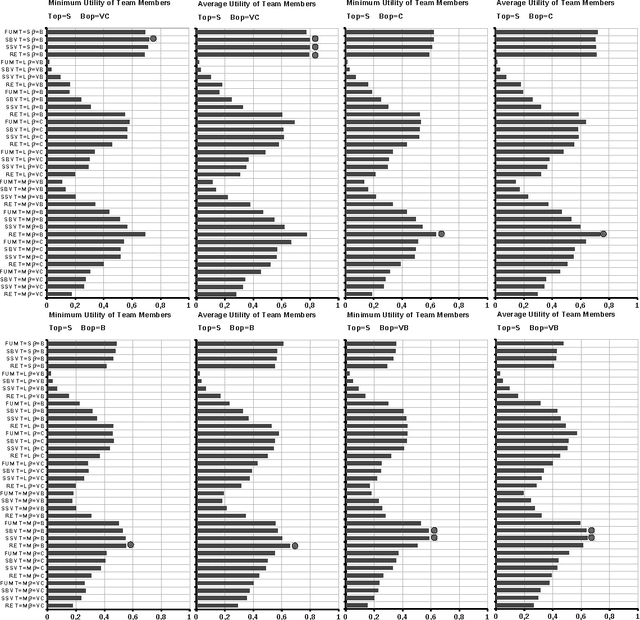
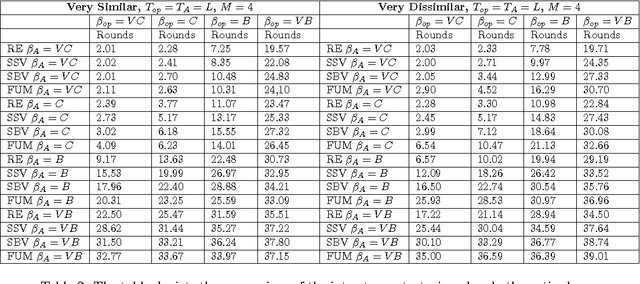
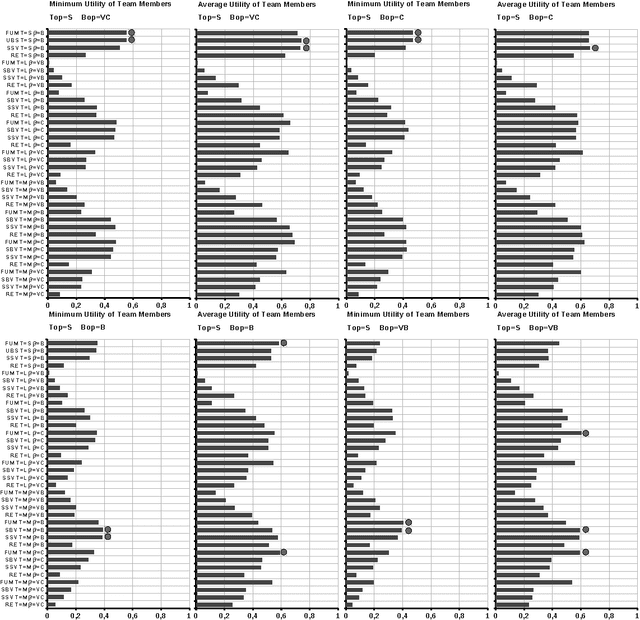
Abstract:In this article we study the impact of the negotiation environment on the performance of several intra-team strategies (team dynamics) for agent-based negotiation teams that negotiate with an opponent. An agent-based negotiation team is a group of agents that joins together as a party because they share common interests in the negotiation at hand. It is experimentally shown how negotiation environment conditions like the deadline of both parties, the concession speed of the opponent, similarity among team members, and team size affect performance metrics like the minimum utility of team members, the average utility of team members, and the number of negotiation rounds. Our goal is identifying which intra-team strategies work better in different environmental conditions in order to provide useful knowledge for team members to select appropriate intra-team strategies according to environmental conditions.
Evolutionary-aided negotiation model for bilateral bargaining in Ambient Intelligence domains with complex utility functions
Apr 16, 2016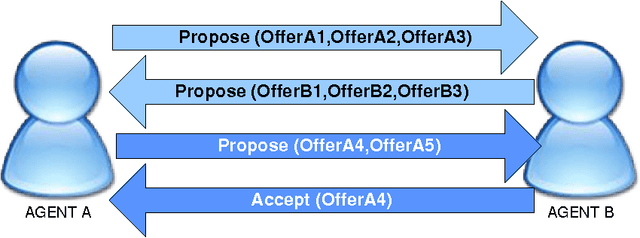

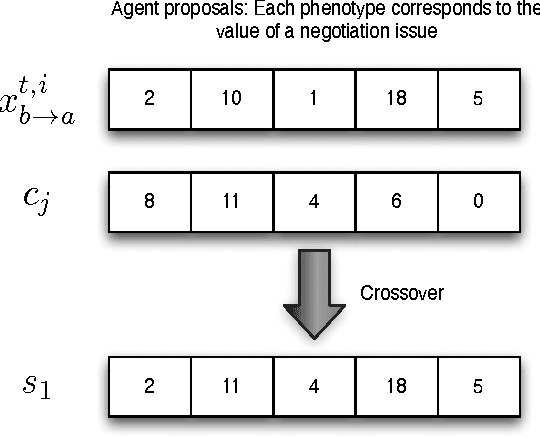

Abstract:Ambient Intelligence aims to offer personalized services and easier ways of interaction between people and systems. Since several users and systems may coexist in these environments, it is quite possible that entities with opposing preferences need to cooperate to reach their respective goals. Automated negotiation is pointed as one of the mechanisms that may provide a solution to this kind of problems. In this article, a multi-issue bilateral bargaining model for Ambient Intelligence domains is presented where it is assumed that agents have computational bounded resources and do not know their opponents' preferences. The main goal of this work is to provide negotiation models that obtain efficient agreements while maintaining the computational cost low. A niching genetic algorithm is used before the negotiation process to sample one's own utility function (self-sampling). During the negotiation process, genetic operators are applied over the opponent's and one's own offers in order to sample new offers that are interesting for both parties. Results show that the proposed model is capable of outperforming similarity heuristics which only sample before the negotiation process and of obtaining similar results to similarity heuristics which have access to all of the possible offers.
Reaching Unanimous Agreements Within Agent-Based Negotiation Teams With Linear and Monotonic Utility Functions
Apr 16, 2016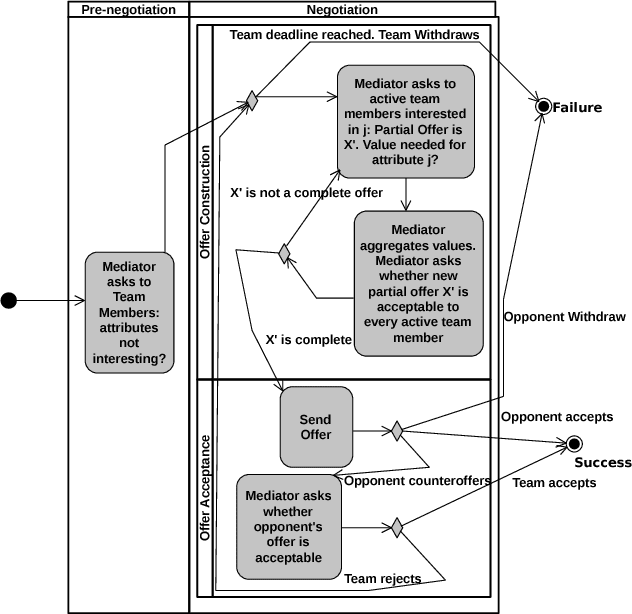
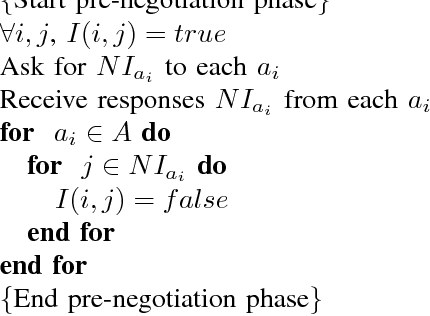
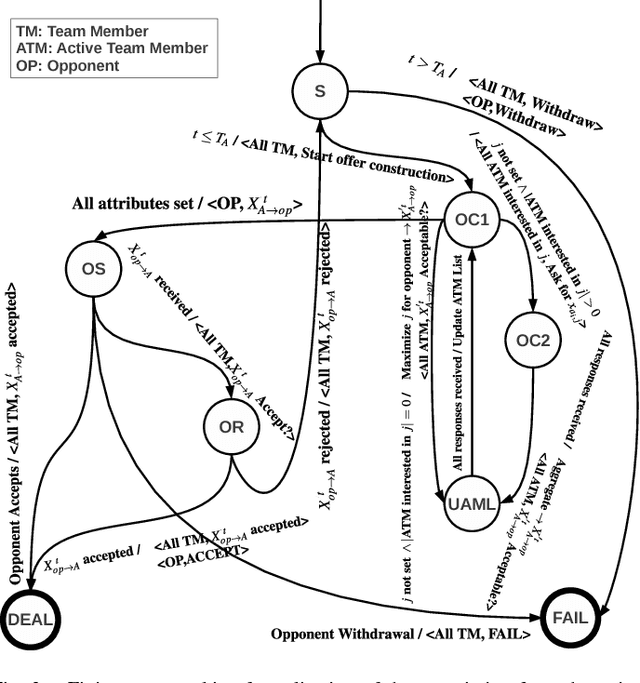
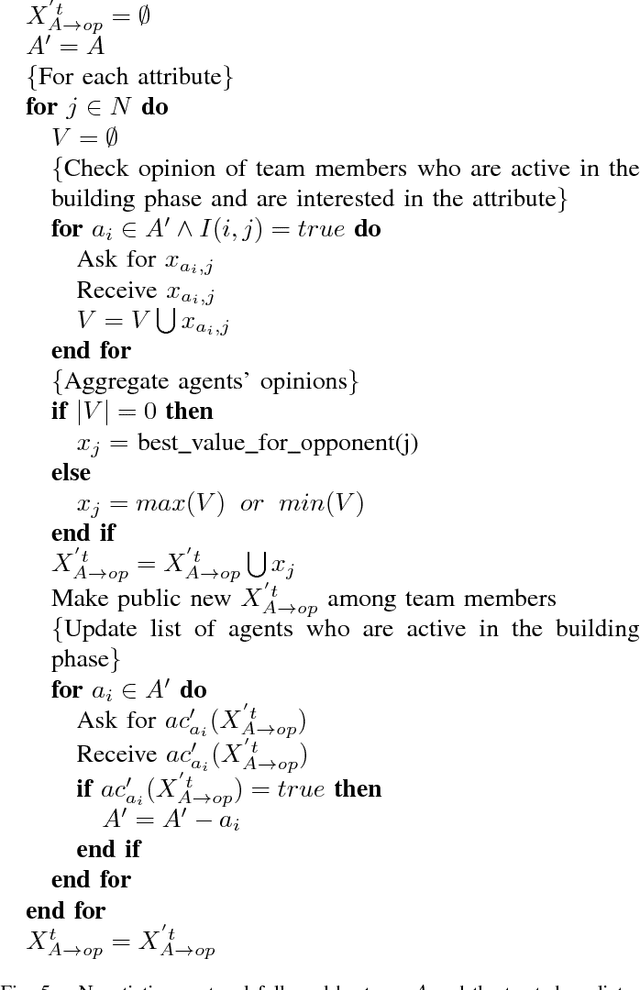
Abstract:In this article, an agent-based negotiation model for negotiation teams that negotiate a deal with an opponent is presented. Agent-based negotiation teams are groups of agents that join together as a single negotiation party because they share an interest that is related to the negotiation process. The model relies on a trusted mediator that coordinates and helps team members in the decisions that they have to take during the negotiation process: which offer is sent to the opponent, and whether the offers received from the opponent are accepted. The main strength of the proposed negotiation model is the fact that it guarantees unanimity within team decisions since decisions report a utility to team members that is greater than or equal to their aspiration levels at each negotiation round. This work analyzes how unanimous decisions are taken within the team and the robustness of the model against different types of manipulations. An empirical evaluation is also performed to study the impact of the different parameters of the model.
Tasks for agent-based negotiation teams: Analysis, review, and challenges
Apr 16, 2016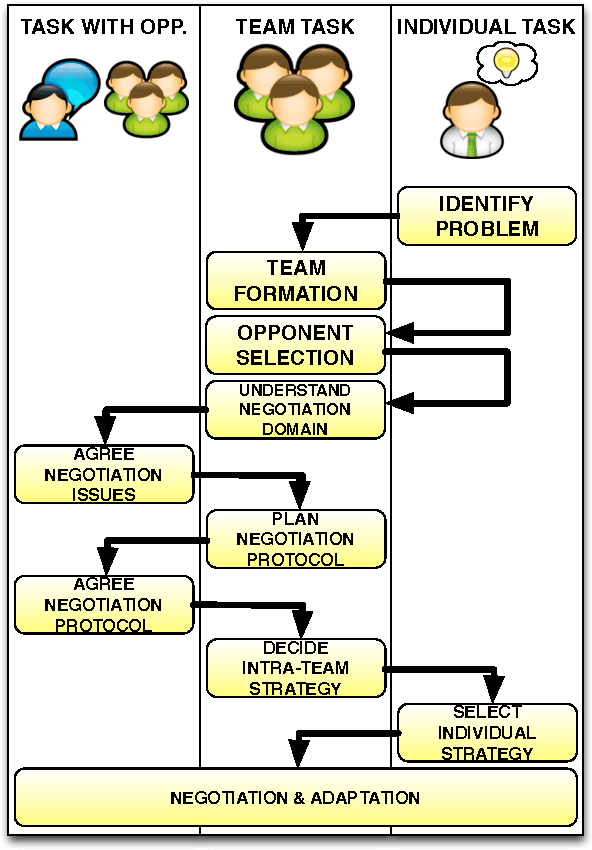
Abstract:An agent-based negotiation team is a group of interdependent agents that join together as a single negotiation party due to their shared interests in the negotiation at hand. The reasons to employ an agent-based negotiation team may vary: (i) more computation and parallelization capabilities, (ii) unite agents with different expertise and skills whose joint work makes it possible to tackle complex negotiation domains, (iii) the necessity to represent different stakeholders or different preferences in the same party (e.g., organizations, countries, and married couple). The topic of agent-based negotiation teams has been recently introduced in multi-agent research. Therefore, it is necessary to identify good practices, challenges, and related research that may help in advancing the state-of-the-art in agent-based negotiation teams. For that reason, in this article we review the tasks to be carried out by agent-based negotiation teams. Each task is analyzed and related with current advances in different research areas. The analysis aims to identify special challenges that may arise due to the particularities of agent-based negotiation teams.
 Add to Chrome
Add to Chrome Add to Firefox
Add to Firefox Add to Edge
Add to Edge